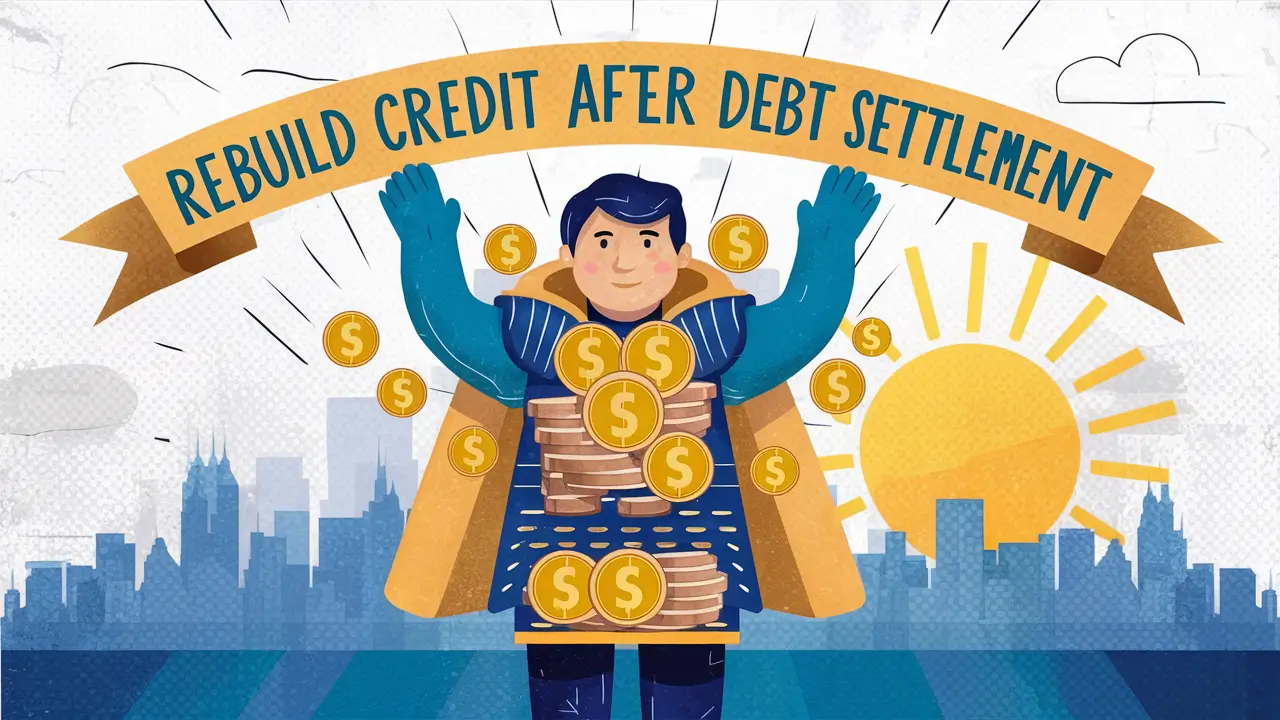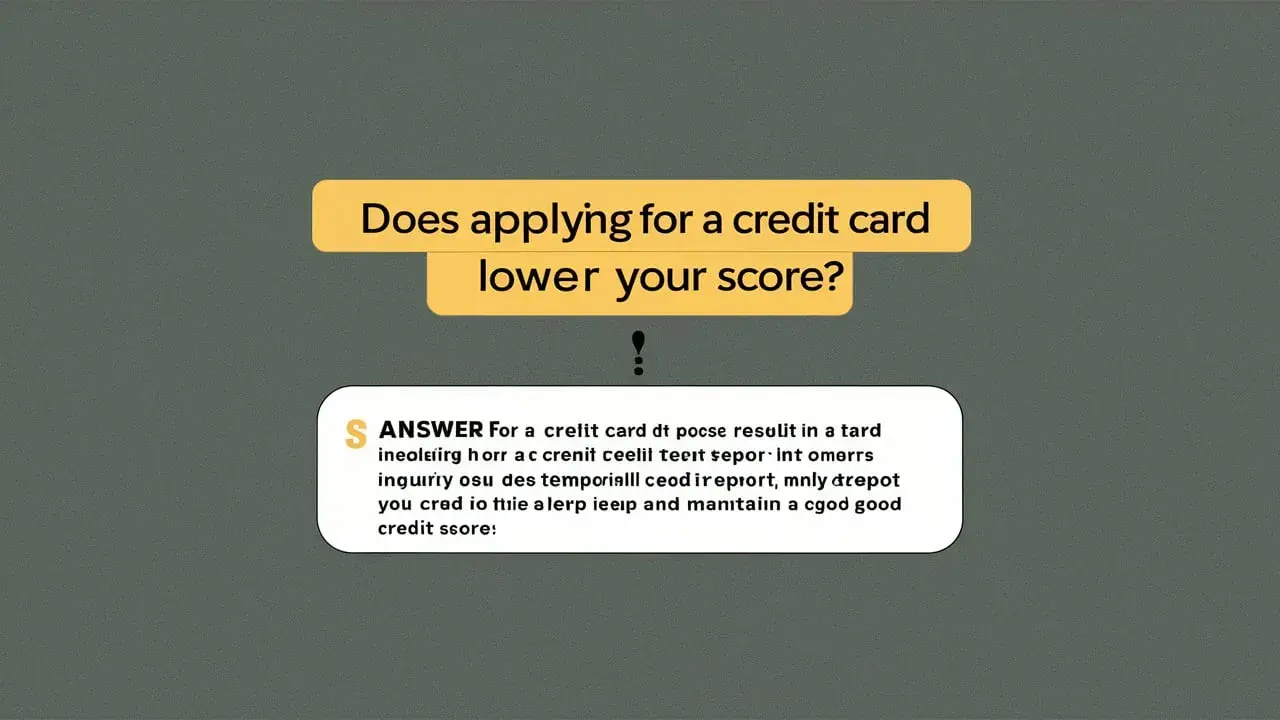-
Posted on: 25 Jul 2024

-
Debt settlement can offer a lifeline when you're struggling with overwhelming debt. However, it's important to understand the implications it has on your credit score. While settling your debts can provide immediate relief, it also leaves a negative mark on your credit report. This article explores the timeframe for rebuilding your credit after debt settlement, the factors influencing the recovery process, and provides actionable strategies to help you get back on track.
Understanding Debt Settlement and Its Impact on Credit
Debt settlement involves negotiating with your creditors to pay a lump sum that is less than the total amount you owe. This can seem like an attractive option if you are facing financial hardship. However, it's crucial to recognize the consequences for your credit score.
How Debt Settlement Affects Your Credit Score
Debt settlement negatively affects your credit score in several ways:
- Payment History: Debt settlement usually involves missing payments or making late payments before the settlement is reached. Payment history accounts for a significant portion (35%) of your FICO score. Late or missed payments can significantly lower your score.
- Account Status: When you settle a debt, the account is often marked as "settled" or "partially paid" on your credit report. This indicates to lenders that you did not fulfill your original obligation, which can be viewed negatively.
- Credit Utilization: If the settled debt was a revolving credit account (like a credit card), settling it may leave a high credit utilization ratio on other open accounts, further impacting your score.
- Public Records: If you are sued by a creditor and a judgment is entered against you, this public record information will also appear on your credit report and negatively affect your score. Debt settlement aims to avoid this, but it's still a potential risk if negotiations fail.
How Long Does the Negative Impact Last?
Negative information, including settled debt accounts, can remain on your credit report for up to seven years from the date of the first missed payment leading to the settlement. While the impact lessens over time, it’s a considerable period to be aware of. The severity of the impact decreases as time passes and positive credit behaviors are established.
The Timeline for Rebuilding Credit: What to Expect
There's no magic number for how long it takes to rebuild credit after debt settlement. The timeframe varies depending on individual circumstances and the strategies employed to improve creditworthiness. However, here's a general outlook:
Short-Term (6-12 Months): Initial Recovery
In the initial months following debt settlement, you might not see significant improvements in your credit score. Focus on laying the foundation for long-term recovery during this period:
- Establish a Budget: Create a detailed budget to track income and expenses. This helps you avoid future debt problems.
- Secure Credit: Applying for a secured credit card (requires a cash deposit as collateral) can be a good starting point for rebuilding.
- Make On-Time Payments: Pay all bills promptly, including utilities, rent, and any other debts. Timely payments are crucial for rebuilding trust with lenders.
- Avoid New Debt: Resist the urge to take on more debt. Focus on managing existing financial obligations responsibly.
Mid-Term (1-3 Years): Moderate Improvement
After consistently demonstrating responsible credit behavior, you may see a noticeable improvement in your credit score. This is when the positive effects of your efforts start to outweigh the negative impact of the settled debt.
- Monitor Your Credit Report: Regularly check your credit report from all three major credit bureaus (Equifax, Experian, and TransUnion) to identify any errors and ensure accuracy. You can get a free copy of your credit report from AnnualCreditReport.com.
- Increase Credit Limits (Carefully): If you have a secured credit card or a small credit line, consider requesting an increase in your credit limit. However, avoid maxing out your credit cards, as high credit utilization can negatively impact your score.
- Consider a Credit-Builder Loan: Credit-builder loans are designed to help people with limited or damaged credit history establish a positive payment record. The loan proceeds are held in an account, and you make regular payments over a set period. Once the loan is repaid, you receive the funds and have established a positive credit history.
Long-Term (3-7 Years): Near Full Recovery
As time passes, the impact of the settled debt diminishes significantly. If you consistently maintain good credit habits, your credit score can approach or even exceed pre-settlement levels. However, remember the negative record remains on your credit report for seven years.
- Diversify Your Credit Portfolio: Consider adding different types of credit accounts to your credit report, such as installment loans (e.g., auto loan, mortgage) or unsecured credit cards. This shows lenders that you can manage different types of credit responsibly.
- Maintain Low Credit Utilization: Keep your credit card balances low, ideally below 30% of your credit limit. This demonstrates responsible credit management and improves your credit score.
- Stay Consistent: Continue practicing good credit habits, even after your credit score has recovered. Consistency is key to maintaining a healthy credit profile over the long term.
Factors Influencing the Rebuilding Process
Several factors can influence how quickly you rebuild your credit after debt settlement:
- Severity of the Credit Damage: The lower your credit score was before debt settlement, the longer it will take to recover.
- Consistency of Positive Credit Habits: Consistent on-time payments and responsible credit management are essential for rebuilding credit.
- Age of Negative Information: The impact of negative information on your credit report diminishes over time.
- Type of Credit Accounts: Having a mix of credit accounts (e.g., credit cards, installment loans) can help improve your credit score more quickly.
- Credit Utilization: Keeping your credit card balances low (below 30% of your credit limit) can significantly boost your credit score.
Strategies for Accelerating Your Credit Rebuilding Journey
While you can’t erase the past, you can proactively improve your creditworthiness. Here are some strategies to consider:
1. Secure a Secured Credit Card
A secured credit card is a credit card that requires a cash deposit as collateral. The deposit usually serves as your credit limit. Secured credit cards are a great way to rebuild credit because they are easier to obtain than unsecured credit cards. They report your payment activity to the credit bureaus, helping you establish a positive credit history.
2. Become an Authorized User
Ask a trusted friend or family member with a good credit history to add you as an authorized user on their credit card. As an authorized user, you can benefit from their positive credit history, which will be reported to your credit report. However, be sure that the primary cardholder makes on-time payments and keeps their credit utilization low, as their credit behavior will affect your credit score.
3. Obtain a Credit-Builder Loan
Credit-builder loans are specifically designed to help people with limited or damaged credit history establish a positive payment record. The loan proceeds are held in an account, and you make regular payments over a set period. Once the loan is repaid, you receive the funds and have established a positive credit history.
4. Dispute Errors on Your Credit Report
Review your credit report from all three major credit bureaus (Equifax, Experian, and TransUnion) for any errors or inaccuracies. If you find any mistakes, dispute them with the credit bureaus. Removing inaccurate information can help improve your credit score.
5. Practice Responsible Credit Management
This is the most crucial strategy for rebuilding credit after debt settlement. Make on-time payments, keep your credit card balances low, and avoid taking on more debt. Consistency is key to establishing a positive credit history and improving your credit score.
The Importance of Patience and Persistence
Rebuilding credit after debt settlement is a marathon, not a sprint. It requires patience, persistence, and a commitment to responsible credit management. Don't get discouraged if you don't see results immediately. Stay focused on your goals, and celebrate small victories along the way. With consistent effort, you can successfully rebuild your credit and regain control of your financial future.










